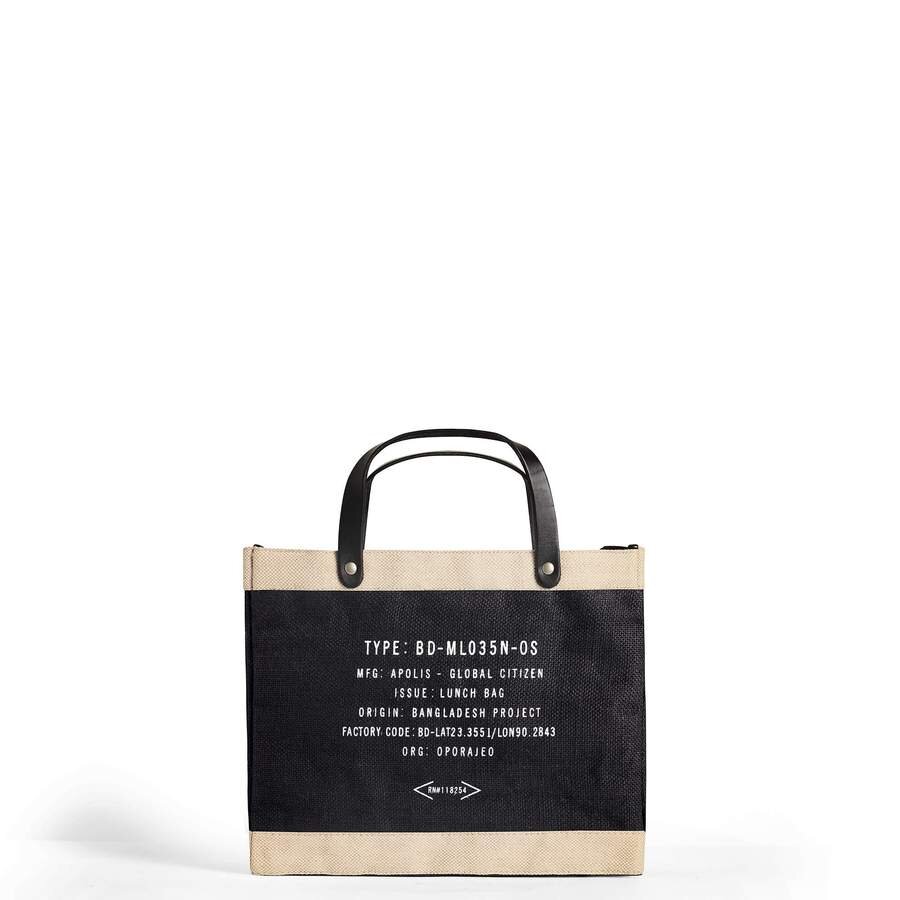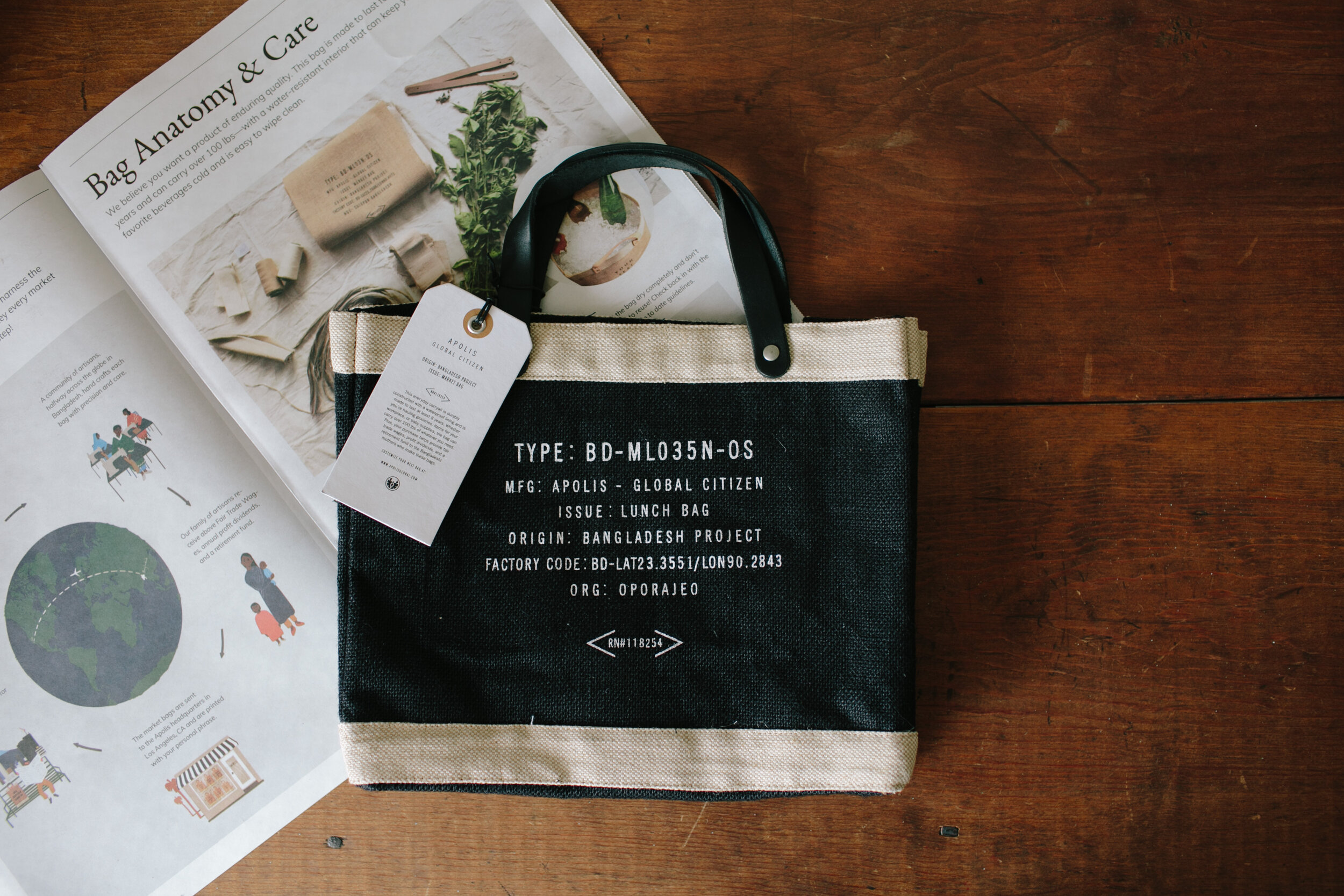Apolis Petite Market Bag
The mothers who handcraft Apolis bags receive Fair Trade wages, annual profit dividends, and a retirement fund to help them achieve their dreams thanks to the Bangladesh Project.
Stamped with the factory code (see below), the Petite Market Bag honors the hands that made it. It’s perfect as a purse, lunchbox, or gift bag.
Dimensions: 12.5" wide, 9.5" high, 5.5" deep, 3.5" drop, with a 5" x 6" interior pocket
Natural Material: 100% natural golden jute fiber harvested in Bangladesh
Water-Resistant Lining: 100% polyurethane
Strong: Can hold over 50 pounds
Leather Straps: Reinforced by antique nickel rivets
The mothers who handcraft Apolis bags receive Fair Trade wages, annual profit dividends, and a retirement fund to help them achieve their dreams thanks to the Bangladesh Project.
Stamped with the factory code (see below), the Petite Market Bag honors the hands that made it. It’s perfect as a purse, lunchbox, or gift bag.
Dimensions: 12.5" wide, 9.5" high, 5.5" deep, 3.5" drop, with a 5" x 6" interior pocket
Natural Material: 100% natural golden jute fiber harvested in Bangladesh
Water-Resistant Lining: 100% polyurethane
Strong: Can hold over 50 pounds
Leather Straps: Reinforced by antique nickel rivets
The mothers who handcraft Apolis bags receive Fair Trade wages, annual profit dividends, and a retirement fund to help them achieve their dreams thanks to the Bangladesh Project.
Stamped with the factory code (see below), the Petite Market Bag honors the hands that made it. It’s perfect as a purse, lunchbox, or gift bag.
Dimensions: 12.5" wide, 9.5" high, 5.5" deep, 3.5" drop, with a 5" x 6" interior pocket
Natural Material: 100% natural golden jute fiber harvested in Bangladesh
Water-Resistant Lining: 100% polyurethane
Strong: Can hold over 50 pounds
Leather Straps: Reinforced by antique nickel rivets
A High Tide Pick Because:
I (Elise) received my first market bag five years ago. I’ve been following/admiring Apolis ever since.
We Love Them For: A Purse. A Lunchbox. A Vessel for Gifting.
More information about the mother-makers in Bangladesh
Location: Saidpur, Bangladesh
Factory Code: BAN-LAT33.7099/LON90.4071
Employees: 200+
What's the story behind the factory? Following the 1971 war that established Bangladesh and brought with it poverty and disease, Saidpur Enterprises began in 1976 as a project to help the mothers of malnourished children with employment producing jute handicrafts and now supports artisans selling for a larger fair trade export market. They also provide literary classes, training on nutrition, women's legal rights, educational awareness and finance.









